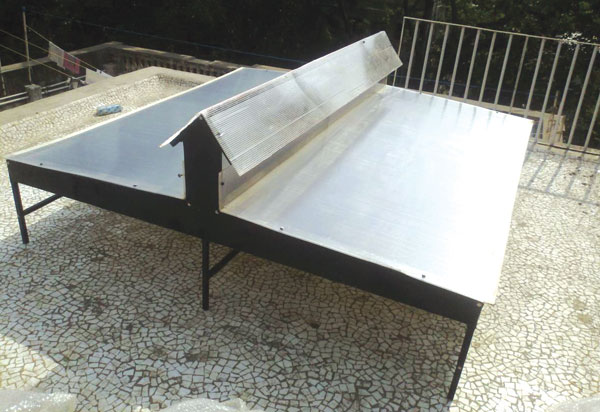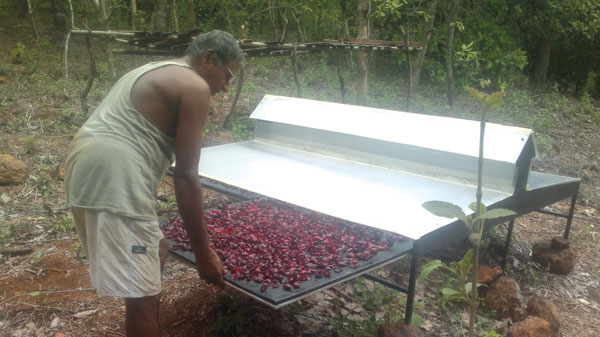Dehydration, a promising but electricity-dependent technology, is commonly used post harvest to increase the shelf life of food produce by almost a year. Across rural India, power cuts for more than eight hours a day are routine, and therefore there is a need for an electricity-free solution. Dehydrated food comprises 45 per cent more nutritional value than open-sun dried food, and hence has about 50 to 200 per cent higher market value. In this context, the solar conduction dryer (SCD) can bring about immense economic improvement in the lives of India’s farmers. The SCD is a solar-based device for the dehydration of agro products. It is so innovative that it won a US$ 60,000 grand prize at the Dell Social Innovation Challenge, where it competed against various other international projects. This project is also recognised by UNESCO, the National University of Singapore and the government of India.

Closing the urban-rural economic gap with efficient post-harvest technology
The SCD can be used to dehydrate agro products (fruits and vegetables), fish and meat. In most cases, an innovation is the result of someone looking to solve an existing problem. Talking about what prompted him to design such a solution, Vaibhav Tidke, founder, Science for Society, says, “According to various surveys, almost 30 per cent of the agro products like fruits, vegetables and grains are wasted due to improper storage and lack of affordable and efficient post-harvest technologies. In a country like India, 70 per cent of the population is directly or indirectly dependent on agriculture, and over 20 per cent of its population is below the poverty line. We cannot afford the luxury of wasting 30 per cent of our agro products.” Tidke adds, “Also, suicides among farmers are a major problem in Maharashtra. Wastage of the final agro produce due to lack of proper storage or processing is one of the main reasons attributed to these suicides. This was the scenario that prompted us to develop affordable yet highly efficient technology to prevent the post-harvest losses of agro and fishery produce.”

This project is aimed at uplifting farmers, many of whom are in dire financial situations. It is low-cost, easy to operate and therefore can be effortlessly operated even by illiterate farmers. Through the widespread use of this technology, value supplemented food products can also be conceived. The substantial losses typically incurred during transport and storage can be avoided. There is a market for dehydrated goods in both developing and developed countries.
The principle on which SCD works
The SCD is based on conduction as the major mode of heat transfer, assisted with convection and radiation. Due to this unique technology, the SCD is more efficient, reduces processing time by 40 per cent and costs three times less than conventional solar dryers. These factors reduce capital expenditure considerably. Due to its unique design, the SCD produces enough of a continuous natural draft of air, which makes any fan or blower redundant, and hence it does not need electricity. So the SCD’s operating costs are virtually zero.
The conventional solar dryers available in the market are three to five times costlier than this SCD. Also, they need electricity to run the blowers or fans, which adds to their operating costs. The adoption rate of these solar dryers has been low since they typically require a high capital investment of approximately ` 10,000/m². Besides, these dryers are based on convection as the mode of heat transfer, and hence are less efficient and more complex.
The challenges faced
“We have been working for the last three years on the solar dryer project. We have gone through numerous models of the SCD and subjected it to lots of trials before developing the current version. To develop an electricity-free, zero-maintenance yet highly-efficient and low-cost technology to dehydrate agro and fishery produce was the main challenge facing us,” says Vaibhav Tidke.
Direct benefit to farmers and women in rural areas
Solar drying of agro and marine products is a proven food-processing technology, which provides value to existing raw material. Dehydrated products have a higher market value and hence result in higher profits.






I want to purchase a solar conduction dryer.please provide me the seller address.